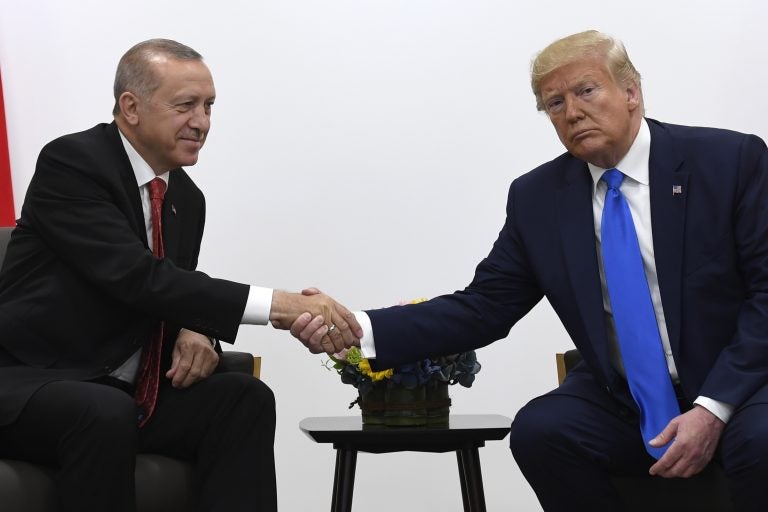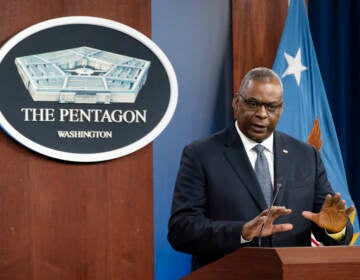The Kurds, Turkey, Syria, and Trump
Today on the show, we’ll talk about what Trump's announcement to withdraw U.S. troops from Northern Syria means for the Kurds, the Middle East, and for U.S. foreign policy.
Listen 48:59
President Donald Trump, right, shakes hands with Turkish President Recep Tayyip Erdogan, left, during a meeting on the sidelines of the G-20 summit in Osaka, Japan, Saturday, June 29, 2019. (AP Photo/Susan Walsh)
Guests: Liz Sly, Samer Abboud, Brendan O’Leary
President Trump announced Monday his plans to withdraw U.S. troops from Northern Syria after speaking with Turkish President Recep Tayyip Erdoğan. Both Republican and Democrats alike have criticized the move, as it imperils the Kurdish population there, whom Erdoğan had recently threatened with incursion. The Kurds reportedly feel betrayed by the U.S. for this, as they had long been an ally in fighting ISIS in the region and were promised protection. Today on the show, we’ll talk about what Trump’s declaration means for the Kurds, the Middle East, and for U.S. foreign policy when we speak with SAMER ABBOUD, associate professor of interdisciplinary studies at Villanova University, and BRENDAN O’LEARY, professor of political science at The University of Pennsylvania. But first, we’ll get the latest on how the announcement is resonating in the Middle East when we speak with Washington Post Beirut Bureau Chief, LIZ SLY.
WHYY is your source for fact-based, in-depth journalism and information. As a nonprofit organization, we rely on financial support from readers like you. Please give today.





